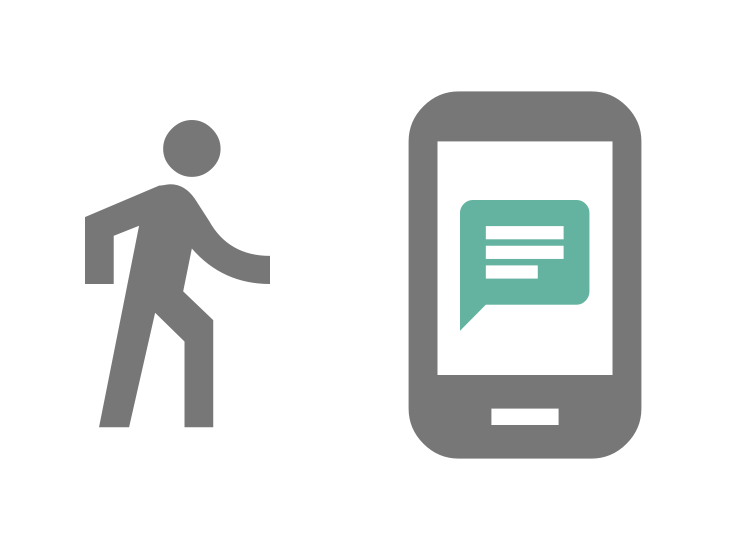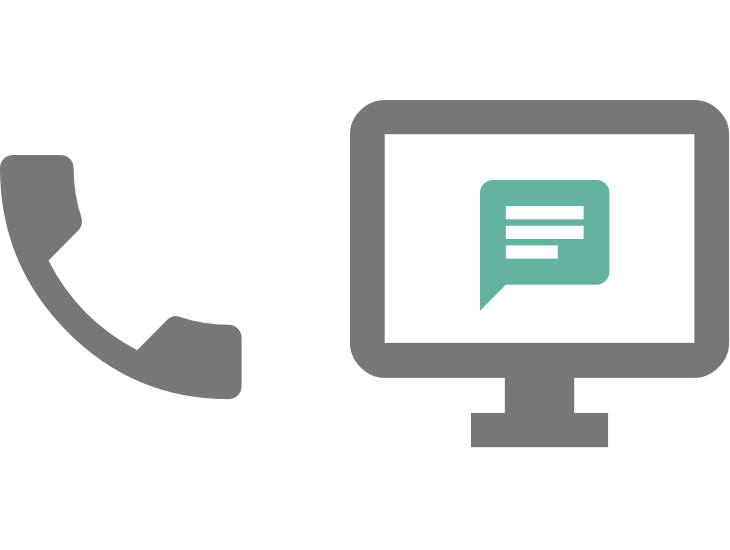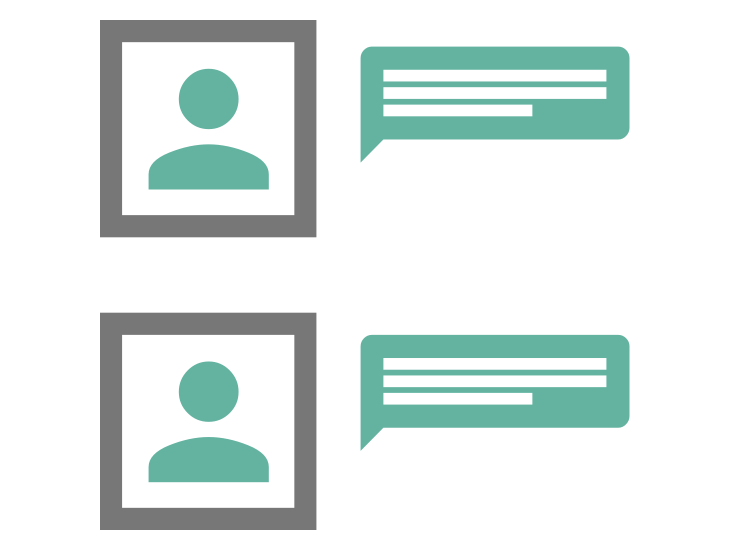GDLive Newsfeed
We check in with people at each stage of the cash transfer process to see how things are going. Take a look at some of their stories as they appear here in real-time.
Learn more about how recipients opt in to share their stories.

access_time
over 2 years ago
Kamuche
received a $26 second payment.
"Getting by the days has been a major challenge as jobs are scarce and finances rare to come by. I am married to one husband who has no job at the moment and together we are blessed with three children. On regular days, I burn and sell charcoal to at least sustain the whole family as I assume the roles of a breadwinner. Receiving the KES 3000 brought a major difference to our lives and really helped a lot. I was able to buy school uniform at KES 1000 for my daughter who is joining Form One this new term. I also bought food worth KES 1000 for our home, since what was left was over that we had to sleep on empty stomachs the previous night but now have adequate food for some time. The remaining KES 1000 I bought three chicken, as with the hope that they will lay eggs and hatch to multiple chicks improving my poultry farming skills."
View Kamuche's
profile

access_time
over 2 years ago
Kahonzi
received a $26 second payment.
"Receiving the KES 3000 has brought much joy and relief to the entire family in this tough economic times. I am married to one husband and we have two kids together. My husband does construction jobs that barely pay well, and I on my end operate as a farmer. I was able to spare KES 1400 for food to last a week as what we had was all over. Me being a farmer, I also rear chicken and previously I had two. I was able to buy four more at KES 1000 bringing the total to six with the hope of adding more in the near future. The remaining balance of KES 600, I paid school fees for one of my children so that he is able to attend school without any inconveniences."
View Kahonzi's
profile

access_time
over 2 years ago
Dama
received a $26 second payment.
"I purchased six chickens for rearing at KES 2000. I stay with three grandchildren but it has been a challenge to raise money for our needs. Most of the available income generating activities in our area are either farm activities or charcoal-burning for sale but my advanced age limits me. Once in a while, I engage in them but the KES 200 I make at the end of the day is barely enough to afford a whole day's meal. The plan is to sell the chicken in the future which shall be my main source of income. KES 1000 I spent on some foodstuffs to push my family for a while."
View Dama's
profile

access_time
over 2 years ago
Ronald
received a $10 initial payment.
"I grew up from the family which practiced animal husbandry and it was easy for me to pick up the same profession from my father. Currently, with the tough times brought by the prolonged drought, livestock keeping has been a challenge, especially with the lack of water and dry season, which makes the animals prone to diseases. It has been difficult to support my family of 1O members (wife and 8 children) especially when I lost some of my livestock to diseases and famine. My transfer of KES 600 was used to buy medicine for my animals and dewormers for the chicken. I spent the remaining KES 200 on buying sugar because it’s one thing that is mostly used in my house. I saved KES 400 to buy broiler legs for the layers to hatch them because it’s cheaper to have them hatched than buying the chicks."
View Ronald's
profile

access_time
over 2 years ago
Naomy
received a $475 initial payment.
"Behind the excitement that we had with my family of five after receiving the first transfer was a great investment idea that my husband and I had settled on. All along, we had been dependent on subsistence farming that we would only sell the surplus in good seasons to earn some income. I was glad to receive the first transfer that came in handy for the poultry project that has been topping our to-do list. I spent KES 22000 on purchasing the construction materials among them; rolls of chain links, nails, and also construction poles that were useful in the renovation of a preexisting chicken coop. After the complete construction, I brought in three-month-old chicks worth KES 15000, later added mature layers worth KES 7000, and in addition, I also bought nine indigenous hens at KES 3150. At the moment, I am glad and could not be any happier raising a total of 73 birds and being able to collect and sell eggs from the mature birds that are already laying. I have been using the small remaining amount to obtain feeds and the required medications that are required as they grow."
View Naomy's
profile

access_time
over 2 years ago
Kadzo
received a $26 sixth payment.
"I am the primary earner of my family as my husband who used to work in farms to earn living can't find jobs anymore due to prolonged drought. Through selling food in a local restaurant that I operate, I can only manage to provide food and therefore as I want an average daily profit of KES 200. Paying school fees for our six children has therefore not been easy. I have always wanted to run a poultry farming business alongside my local restaurant but I have not been able to raise a start up capital by my own. When I was enrolled in the program, my goal was to start the business and over the months that I have been receiving the transfers, I have been buying at least five chicken per month. I spend KES 2000 of my most recent transfer to add more stock to my business and the balance to buy five small chicken whereby one was going for KES 200. I'm happy that I was finally able to achieve my dream and I'm looking forward to expand the business."
View Kadzo's
profile

access_time
over 2 years ago
Marfret
received a $475 initial payment.
"Upon withdrawal of my first transfer, I bought iron sheets worth KES 10,000 which I used in expanding a two-roomed house. I am happy since my visitors have a place to stay whenever they come. I also bought two sheep for KES 8,000 this is additional to my livestock and can sell them whenever I have an emergency. I bought four chicken at KES 6,000 which will provide us with eggs for consumption and later when they multiply we can sell them to earn an income. With KES 12,000 I bought a water tank which I use to store water, especially during dry seasons hence saving me from walking distances in search of water. With the remaining amount, I bought food and clothing for my family members."
View Marfret's
profile

access_time
over 2 years ago
Jumwa
received a $26 second payment.
"I rely on my son, who works from one casual job to the next to make ends meet. He carries the responsibility of raising funds for food and supporting his children's education. To avoid being a burden to him, I began raising chickens that would multiply and help me fend for myself when I sold them. For this purpose, I purchased three hens worth KES 900 from the transfer. When the flock grows large enough, I plan to trade it for goats and eventually cattle. I saved KES 1,500, which I intend to supplement with future transfers to purchase a new bed and mattress to replace the old worn-out and tattered beddings. I used the remaining funds to purchase food because the household had run out the previous night."
View Jumwa's
profile

access_time
over 2 years ago
Kache
received a $26 second payment.
"The most important task that Give Directly performs is the transfer of cash to individuals. I benefited from the previous two transfers by purchasing a goat and two chickens. In addition, the money has enabled me to purchase enough food for my family. I cannot think of anything that Give Directly does wrong."
View Kache's
profile

access_time
over 2 years ago
Sidi
received a $26 second payment.
"As the primary breadwinner in my family, I make and sell charcoal for a living. When things get tough, my sons, who are also casual laborers, pitch in to enable us to get through hardships. I was preparing my son for high school when I received the transfer. He needed to pick up his birth certificates in one town and drop off bursary applications in another. Because our village is quite remote, I gave him a KES 1,500 motorbike transport fare to run the errands. Also, I used KES 500 to buy food for our family of four after it ran out the night before. I saved the remaining KES 1,000 to purchase chicken later for rearing."
View Sidi's
profile





